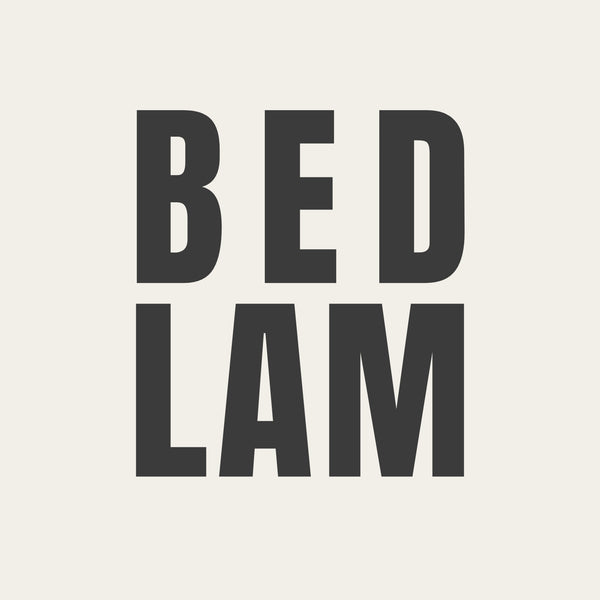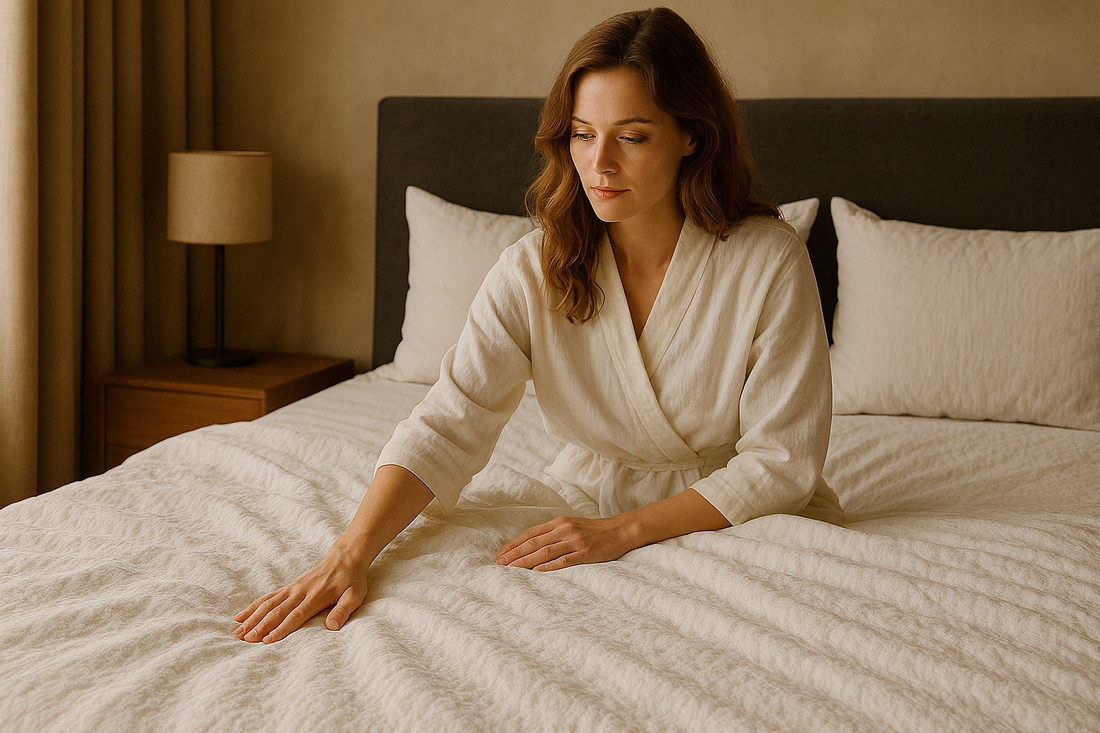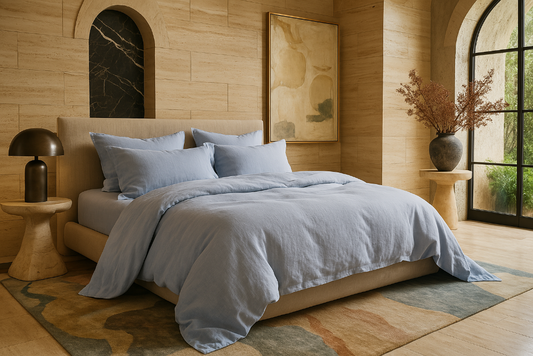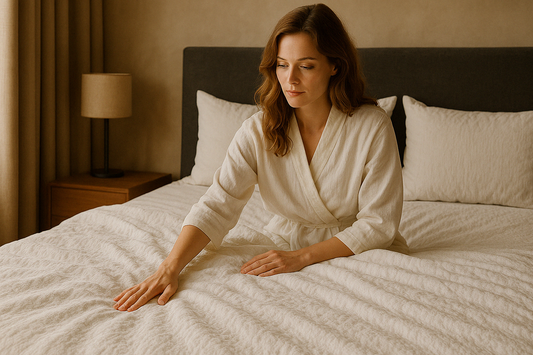When it comes to linen bedding in 2025, few names pop up more often than Quince linen sheets. They’re praised for approachable pricing, minimalist branding, and European flax sourcing. But there’s an important detail many shoppers miss: while the flax comes from Europe, the weaving, sewing, and finishing of Quince linen sheets happen in India and China.
Understanding the difference between raw material origin and manufacturing location is key if you’re aiming for true craftsmanship, durability, and performance.
Whether you’re linen-curious or shopping for a better night’s sleep, knowing the full story behind Quince linen sheets—and linen quality overall—can save you time, money, and disappointment.

What Are Quince Linen Sheets Made Of?
Quince linen sheets use flax grown in France, Belgium, and other parts of Europe—regions known for cultivating long-staple, durable fibers. However, after harvesting, the flax is shipped to India and China, where the fabric is woven, sewn, and finished into final products.
This global production model isn’t unusual in the textile world. Still, if full European craftsmanship matters to you—where not just the plant but also the fabric is created—you’ll want to look beyond the flax’s country of origin.

GSM: The Fabric Weight Factor You Shouldn’t Ignore
One crucial detail often missing is GSM—grams per square meter—which tells you how dense and durable linen will feel over time.
At the time of writing, Quince linen sheets do not publicly disclose their GSM. However, based on customer reviews and discussions, their sheets are widely reported to measure around 150 GSM—placing them on the lighter side.
While lighter linen feels breezy initially, heavier GSM (190–210) linen tends to last longer, soften more deeply, and offer greater value over time.
(Need a primer? Our guide Good GSM for Linen Bed Sheets: How to Choose the Right Weight explains this further.)

What Linen Should Feel Like Over Time
Authentic linen evolves beautifully. It starts crisp but softens with every wash, gaining suppleness without losing strength.
When evaluating Quince linen sheets, consider that true quality linen should:
- Regulate your temperature effortlessly
- Grow softer with use, not scratchier
- Maintain structure even after years of laundering
Understanding where and how your linen was finished matters if you want that lived-in softness linen lovers chase.

Price vs. Quality: The Real Equation
Quince linen sheets are competitively priced compared to many European-made alternatives. But linen’s real value isn’t in first impressions—it’s in how the fabric matures.
Lower-cost linen often comes from looser weaving and faster industrial processing, which can shorten its lifespan. Sheets with denser GSM and slower, traditional finishing offer a different, longer-lasting experience.

Sustainability Claims: Look Closer
Linen as a fiber is naturally sustainable: flax needs little water, few pesticides, and grows in cooler climates. However, sustainability isn’t only about farming—it’s also about how the fabric is processed.
Quince linen sheets emphasize European flax, but since the processing is overseas, buyers concerned about full ecological stewardship should dig deeper into production details.
(For a broader look, see Why Linen Is the Ultimate Eco-Friendly Fabric from Vogue.)

Why 2025 Brings New Questions About Linen Sourcing
In 2025, tariffs and changing global trade policies have made textile sourcing even more important.
Because Quince linen sheets are processed in India and China, they may be impacted by new import tariffs affecting product costs and supply chains. Beyond pricing, there’s a growing awareness among buyers to seek out transparency—not just about flax sourcing, but about ethical production from start to finish.
Transparency protects not just your investment, but the environmental and ethical footprint of your purchase.

How Quince Linen Sheets Compare to Other Options
Quince linen sheets deliver accessible breathability and comfort at a lower price point—an inviting entry for new linen users.
Still, if you’re after heavier GSM sheets, traditional European craftsmanship, or linen that matures into something heirloom-worthy, it’s worth exploring all the fine print before making your final choice.
(For a deeper look, visit our Linen vs Cotton Sheets Guide.)

Final Thoughts
Linen remains one of the most rewarding investments for better sleep and a healthier home. Quince linen sheets are a compelling starting point—but knowing what GSM means, where your fabric is made, and how quality unfolds over time ensures you buy with both heart and mind.
After all, linen isn’t just bedding—it’s the fabric of your life, night after night.
Further Reading
Want to dig deeper into linen quality, fabric weight, and how to choose bedding that actually lasts?
Here are a few recommended reads:
- Good GSM for Linen Bed Sheets: How to Choose the Right Weight — Understand why GSM matters more than thread count when buying linen.
-
The Linen Sheets Guide: Why GSM Matters More Than Thread Count — Explore how GSM impacts feel, breathability, and durability for linen sheets.
- Shop BEDLAM Linen Sheets — Premium-quality linen bedding crafted entirely in Europe, built to last season after season.
Choosing the right linen is about more than labels—it’s about understanding the full story behind what you sleep in, night after night.





